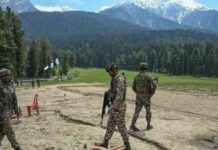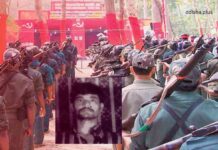OdishaPlus Bureau

The Centre on Monday proposed that Jammu and Kashmir should be made a Union Territory with a Legislature. Apart from this, the central government also said that Ladakh should become a UT but without a Legislature. Here is what you should know what is the difference between a UT (Union Territory) and a State.

What is a Union Territory?
A Union Territory or UT as an administrative division which is controlled by the Central Government. As the term suggests, it is a territory under the Union Government and does not have a separate Legislative Assembly or a government of its own. The President of India appoints an administrator or lieutenant-governor for UTs.
What is a State?
State, on the other hand, is an independent unit which has its own Legislative Assembly with elected representatives. Simply put, these states are well defined political territories which have its own Chief Minister. The basic functions of the state are handled by the State Government which includes security, healthcare, governance as well as revenue generation.
The basic difference between a UT and a state remains that of the mode of governance. UT is governed by a Lt. Governor appointed by the central government while a state operates as per the elected members of the state’s Legislative Assembly.
What is a UT with a Legislative Assembly?
There is a proviso to the above rule. The Indian Constitution provides the setting up of a Legislative Assembly in a Union Territory with elected members. This is the case in National Capital Territory – NCT Delhi and also in Puducherry. Barring Delhi, Puducherry, and Chandigarh, Article 240 (2) confers the supreme power to the President of India in regulating the affairs of all the union territories. Jammu & Kashmir or JK would fall under the category of Puducherry and Delhi.
Under the special provision, the powers are distributed between the Governor and the Chief Minister who is the elected member. While education and Municipal operations fall under the Legislative Assembly, the governance of Security/ police and other functions are maintained by the Centre under the guardianship of the Lt. Governor.

























